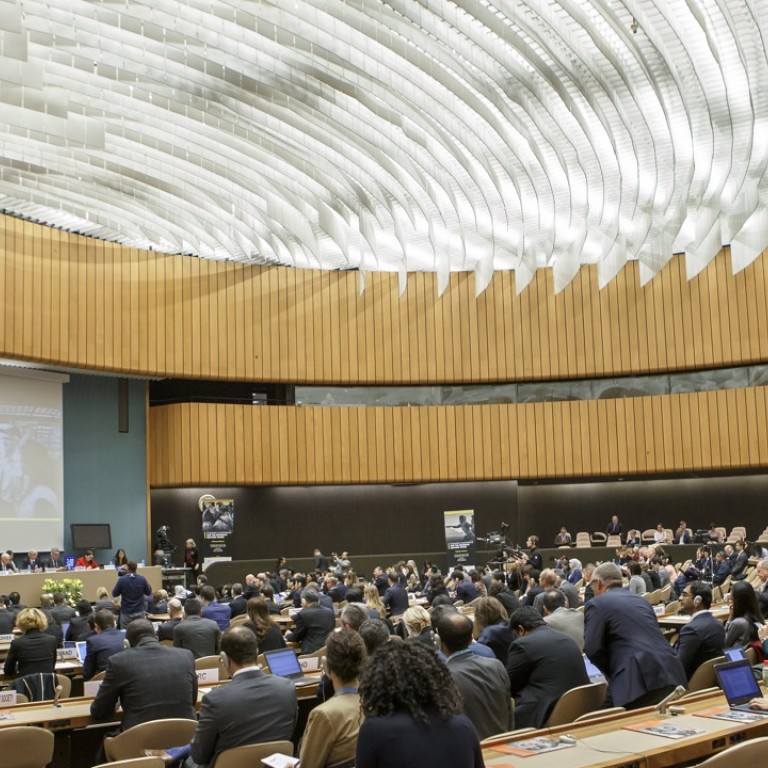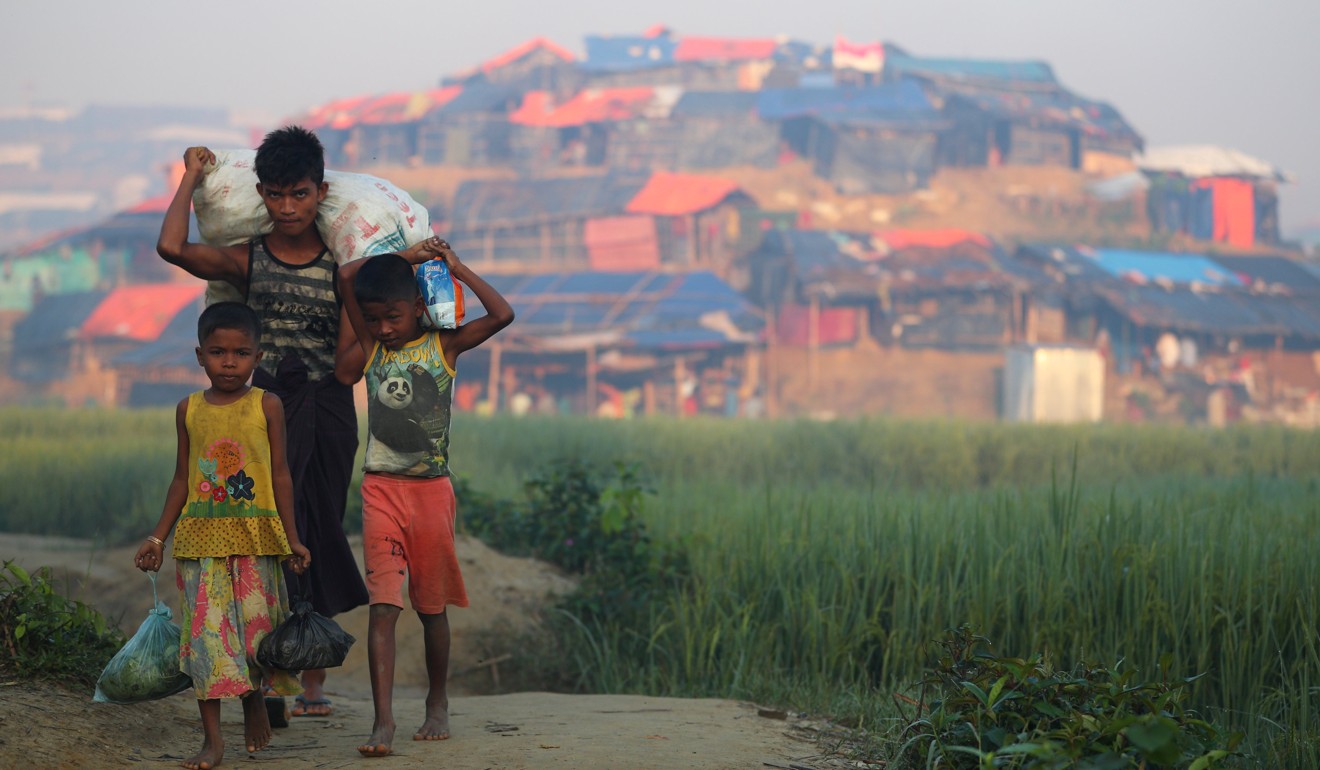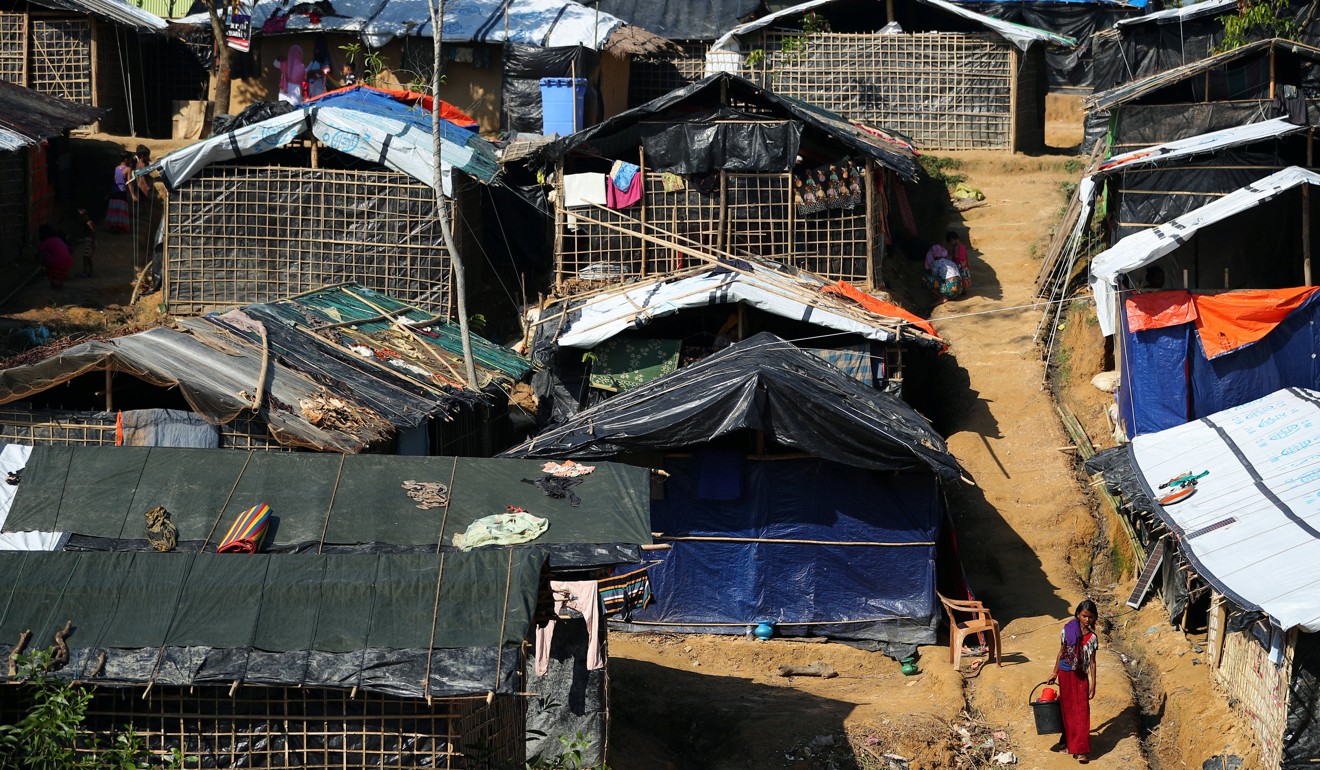
Rohingya refugee count approaches 1 million as UN donor conference opens
The UN opened a major fundraising conference on Monday aimed at securing hundreds of millions of dollars aid groups say is needed to care for Myanmar’s Rohingya refugees in Bangladesh.
More than 600,000 people from the Muslim minority group have fled violence in Myanmar’s northern Rakhine state since August.
That has taken the total number of Rohingya refugees in Bangladesh to an estimated 900,000, including those who fled before the latest surge in violence.
The pledging conference in Geneva, co-hosted by the European Union and Kuwait, is part of an effort to raise US$434 million by February 2018.
Bangladesh called on Myanmar on Monday to allow nearly 1 million Rohingya Muslim refugees to return home under safe conditions, saying that the burden had become “untenable” on its territory.
“This is an untenable situation,” Shameem Ahsan, Bangladesh’s ambassador to the United Nations in Geneva, told a UN pledging conference. “Despite claims to the contrary, violence in Rakhine state has not stopped. Thousands still enter on a daily basis.”

Vital humanitarian aid must continue, Ahsan said, adding: “It is of paramount importance that Myanmar delivers on its recent promises and works towards safe, dignified, voluntary return of its nationals back to their homes in Myanmar.”
US$100 million was delivered or promised before the conference opened, and the EU pledged an addition €30 million (US$35 million) on Monday.
“We are here today because, sadly, the needs are even greater than we can provide with our current resources,” deputy chief of the World Food Programme, Elisabeth Rasmusson, told the conference. “On behalf of the people we are trying to help, we must ask you for more.”
The funds will benefit the 900,000 refugees as well as roughly 300,000 locals in Bangladesh’s Cox’s Bazar by the Myanmar border.

Myanmar considers the Rohingya to be stateless, although they trace their presence in the country back generations.
Filippo Grandi, UN High Commissioner for Refugees, told journalists that the two countries had begun talks on “repatriation”.
Conducive conditions have to be “recreated” in Rakhine, he said. “This must include a solution to the question of citizenship, or rather lack thereof for the Rohingya community,” Grandi said.
Khaled al-Jarallah, deputy foreign minister of Kuwait, called on Myanmar authorities to “cease the practise of stripping the Rohingya minority of their right of citizenship, which as a result deprives them of the right to property and employment”.
Jordan’s Queen Rania visited Rohingya refugee camps on Monday and called for a stronger response from the international community to the plight of the Rohingya who fled to Bangladesh to escape “systematic persecution” in Myanmar.
“One has to ask, why is the plight of this Muslim minority group being ignored? Why has the systematic prosecution been allowed to play out for so long?” she asked after touring the camps.
Locals and Bangladesh’s government have been broadly praised for their response to the Rohingya refugee influx, notably for keeping the border open.
Rohingya refugees have been heading to Bangladesh in huge numbers after militant attacks on Myanmar security forces in Rakhine state sparked a major army crackdown on the community likened to ethnic cleansing by the UN.
Rohingyas have been systematically deprived of basic rights over decades in majority Buddhist Myanmar.
In the latest crackdown, Myanmar’s security forces are accused by UN investigators of firing indiscriminately on unarmed civilians, including children, and committing widespread sexual violence – charges the army denies.

.png?itok=arIb17P0)
